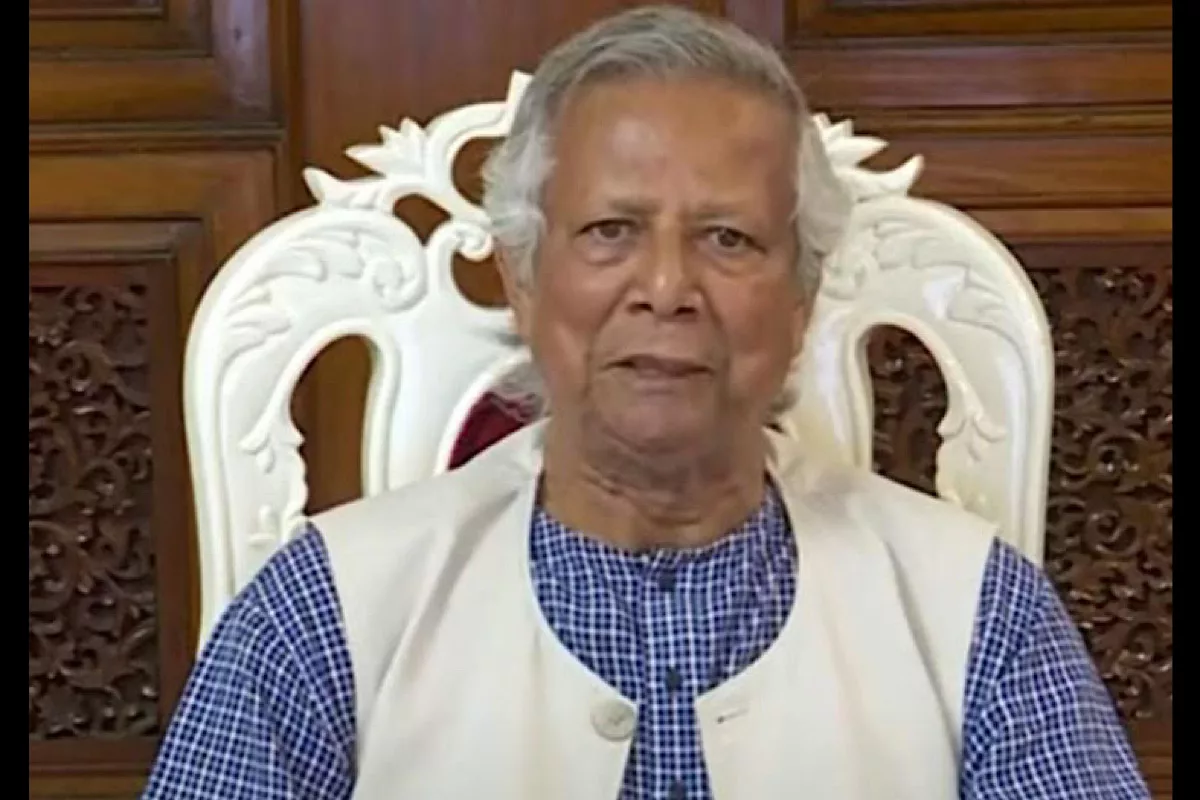India hardens stand against China, Türkiye for backing Pak during confrontation
“Mutual trust, mutual sensitivity, and mutual respect form the basis of India-China relations,” Ministry of External Affairs spokesperson Randhir Jaiswal said.
Bangladesh leader Muhammad Yunus’ visit to China this week marks a critical moment in South Asian geopolitics.
Statesman News Service | New Delhi | March 28, 2025 7:05 am

Bangladesh leader Muhammad Yunus’ visit to China this week marks a critical moment in South Asian geopolitics. The interim leader, who came to power after former Prime Minister Sheikh Hasina’s forced exit, is signalling a potential shift away from India’s traditional influence in Dhaka. China, quick to seize strategic opportunities, is rolling out the red carpet. The stakes are high ~ not just for Bangladesh but for the entire region. China’s deepening ties with Bangladesh are not new.
It has long been Dhaka’s largest trading partner, its biggest arms supplier, and a key infrastructure investor under the Belt and Road Initiative. However, the current political upheaval of f ers Beijing a fresh opening. By positioning itself as Bangladesh’s go-to partner, China can further entrench its influence in the Bay of Bengal, a crucial maritime region where India, the US, and Japan have strategic interests. For China, the benefits are two-fold. First, a pro-China Bangladeshi leadership could dilute India’s strategic depth in the neighbourhood. Secondly, by strengthening security ties, Beijing can gain access to ports and logistical hubs, boosting its regional presence. Bangladesh, with its geostrategic location, is a vital piece in China’s Indo-Pacific puzzle.
Advertisement
The Yunus administration’s tilt toward China appears to be driven by political and economic considerations. The new leadership, comprising non-Awami League factions, seeks to recalibrate foreign relations after years of India-centric policies under Sheikh Hasina. However, the timing and nature of this shift raise questions about whether it is a pragmatic diversification strategy or a reac – tio nary move to distance itself from India. Bangladesh’s economic realities also play a role. With rising infrastructure debts and an urgent need for foreign investments, Dha ka may find China’s financial promises attractive.
Advertisement
The Belt and Road Initiative’s renewed push and potential security cooperation agreements could offer short-term economic relief. But the long-term implications ~ especially the risk of debt dependence ~ must not be overlooked. Mr Yunus’ China visit will likely accelerate regional recalibrations. If Bangladesh formalises security agreements with Beijing, it will trigger concerns in New Delhi. India’s historical, cultural, and economic ties with Bangladesh are deep, but geopolitics is driven by realpolitik. A shift in Dhaka’s stance could push India to rethink its neighbourhood strategy, strengthening partnerships with Japan, the US, and other Indo-Pacific allies to counterbalance Chi na’s inroads. The broader question is whether Bangladesh is truly securing an independent strategic space or merely becoming a pawn in China’s expansionist playbook.
As Beijing deepens people-to-people exchanges and economic engagements, Dhaka’s leaders must carefully navigate this newfound proximity. Sovereignty and strategic autonomy must remain paramount, lest Bangladesh find itself in a geopolitical bind from which exit options are limited. For India, the lesson is clear: complacency is not an option. A more proactive and flexible approach is needed to counter balance China’s influence in the region. The Dhaka-Beijing equation is evolving, and New Delhi must be prepared to recalibrate its own playbook accordingly.
Advertisement
“Mutual trust, mutual sensitivity, and mutual respect form the basis of India-China relations,” Ministry of External Affairs spokesperson Randhir Jaiswal said.
Bangladesh's National Security Advisor Khalilur Rahman on Wednesday ruled out any possibility of allowing a corridor through Bangladesh for Myanmar, saying the government led by Muhammad Yunus has neither discussed nor intends to discuss such a proposal with any party.
India is set to launch an extensive global outreach campaign aimed at exposing Pakistan's alleged role as a hub of international terrorism.
Advertisement
